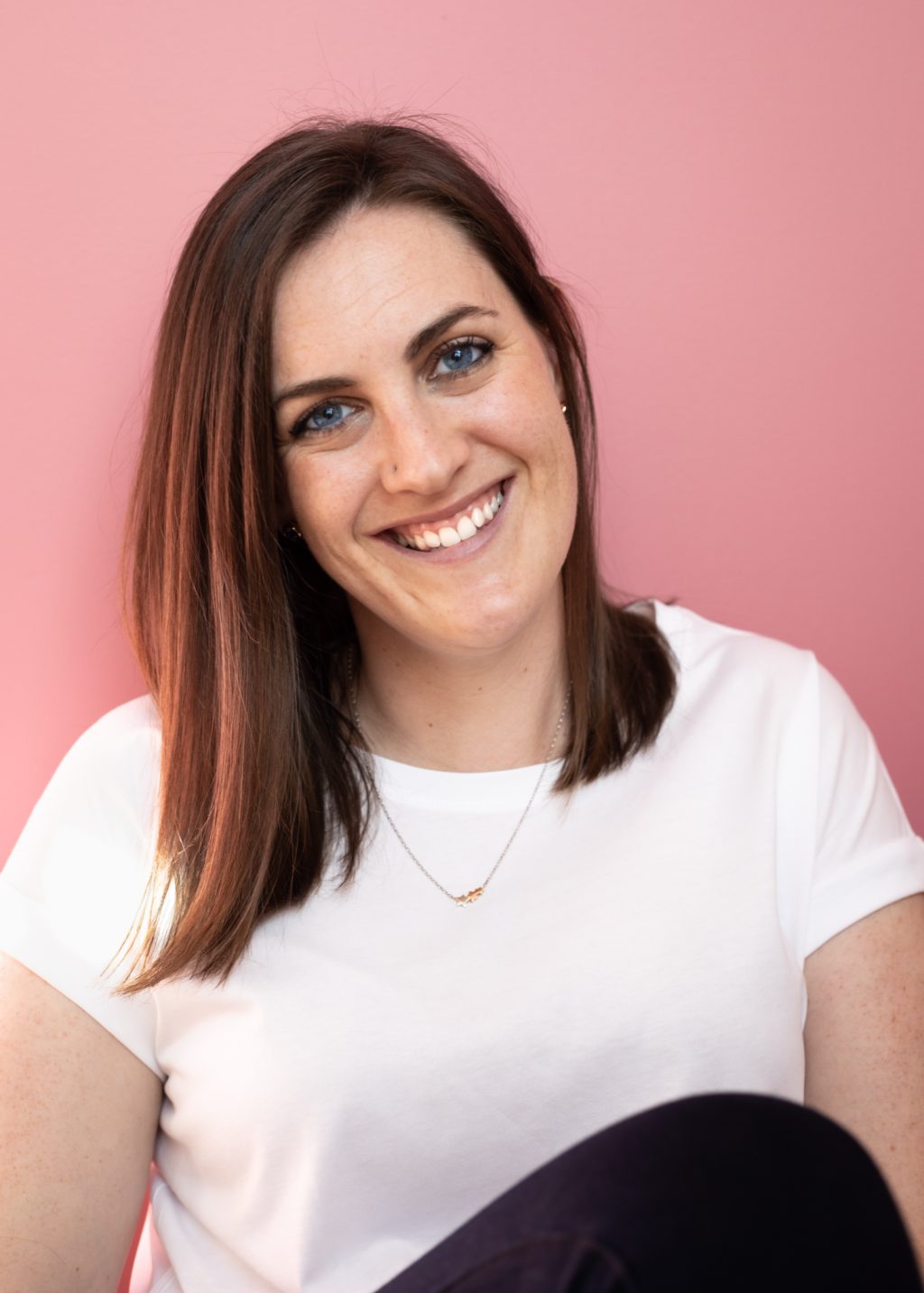Meet the Judges of the 2023 Rachel Funari Prize for Fiction

meet the judges of the 2023 rachel funari prize for fiction: katherine larsen
Image: Supplied
We’re thrilled to introduce you to the incredible people who make up the judging panel of the 2023 Rachel Funari Prize for Fiction. Today, meet publisher Katherine Larsen.
Tell us about Debut Books and The Write Stuff. What led you to starting your own publishing company?
After firmly planting myself within the walls of Penguin Random House (and absolutely loving my time there), I ended up moving overseas for two years unexpectedly.
I missed publishing deeply but there were many aspects to my experiences of it (upon reflection) that were frustrating and disappointing. The more I was awakening to the needs for diversity, equity, and inclusion, the more I realised that ‘the way it has always been done’ was no longer acceptable. For me, intentional change was the only way forward and I felt that to make the biggest impact possible, I was going to have to try and do it my own way.
Debut Books is my response to the call for greater representation in publishing, and The Write Room responds to the call for greater accessibility to the industry. I have never understood why information about the publishing industry is withheld or made difficult to obtain. We do a disservice to writing communities when we obscure or hide the knowledge that allows people to write, publish and succeed.
The Write Room is here to change that by committing to transparency and the sharing of knowledge with the aim of empowering writers on their path to publication and allowing them to walk that path with their eyes wide open to the realities and expectations they will face.
Has this always been your dream gig? If you weren’t doing this, what might you be doing?
From the moment I worked out that I could work with books in a professional capacity, I knew it was the only thing I ever wanted to do. Over the last decade I have been fortunate enough to be able to cultivate a career that allows me to breathe books every day and I wouldn’t have it any other way. If I really couldn’t work in publishing or bookselling anymore, I suspect I would still end up in the kind of role that focuses on people’s stories and advocating for a better future (or maybe running a dog rescue…)!
When you’re reading a manuscript, how do you know that you have something special; something worth publishing? More specifically, what was the process like for selecting the stories that feature in The Mini Collection?
I have come to recognise through my years of reading manuscripts that I tend to have a very physical reaction to the stories that are special. More than just a gut feeling, I feel an urgency to keep reading, to want to step wholly into the story. The hairs stand up on my arms, I get butterflies in my tummy… I have even been known to spontaneously burst into happy tears. My love of reading and storytelling is very much an embodied existence.
When I was searching for writers to commission to write each of the Minis, I was looking for humans who were challenging the status quo, whose values aligned with those of Debut Books (and my own), and who challenged the ways I show up in our world. They were exciting and frightening and brilliant and intimidating, all at once. They are who they are, unapologetically. Messy, imperfect and very much alive.
That’s the kind of storytelling I love… the stories that speak to the aliveness of our humanity.
What do you feel is the biggest misconception writers have about indie publishing?
That it isn’t as ‘valid’ as being published by the big ones, that it is somewhat less. I feel that it is a direct response to an earlier point about writers not being fully informed about the realities of being traditionally published. It isn’t always what it is perceived to be.
What does a typical working day look like for you?
I try my best to start my working day with 60-90 minutes of uninterrupted writing time. Debut Books and The Write Room requires large amounts of content creation from newsletters, blog posts, social media posts, contracts, reports, assessments… it never ends. I am always writing something, and I try to get as much done in this time and then edit and complete them in other scheduled blocks. It is a daily balancing act of working ‘on’ the business and working ‘in’ it so after writing time I spend time on admin (finances, emails etc), lots of planning and then my afternoons are usually filled with coaching or mentoring calls, being on social media, creating for social media, and business development. If I’m working on a book I might be liaising with editors and designers and authors too.
Although Debut Books is not currently open for submissions, my favourite time of day was the last half an hour where I would dive into the manuscript submissions and read for the last half an hour (or hour) of my day.
The Rachel Funari Prize for Fiction calls for stories by women and non-binary writers. What’s your view on diverse representation in publishing?
When I first started calling for more diverse representation in writing, it was a blanket statement that lacked a true understanding of just how nuanced and complicated an issue it is (and I know that I’m not the only one). The lack of diverse representation is underpinned by greater issues of equity, which is a much, much bigger conversation. I fully believe that we need to make more opportunities and more principled spaces to engage and nurture ‘own voices’ writing, to hear queer stories from queer writers, and so on. In saying that, I don’t believe that writers should only write what they know for that would narrow the current representation in publishing even further.
‘Own voices’ doesn’t just mean only being able to write about experiences that pertain to a person’s specific identity and experiences, although we do need that too. A queer, nonbinary, disabled Black writer must have the CHOICE to write to their specific experiences and identity OR any other kind of story that they want to tell.
For example, as a queer person, I am so tired of heterosexual writers assuming the perspective of queer characters and writing our experiences from a straight perspective. It almost always revolves around the trauma of queerness and further encourages the single story that all queer people have been traumatised by their queerness. There is a lack of nuance and representation of queer joy, or the fact that our queer identities are not our only identity. Yes, I am queer, but I am also a bookworm, a dog lover, vegetarian, and nature-obsessed. My queerness has nothing to do with being vegetarian, or loving dogs and trees. And yet when a non-queer writer assumes the queer identity, queerness informs every part of their identity. For some people that may be true, but it is not the only queer story.
I want to see publishing spaces that make room for all kinds of storytelling.
I want to see publishing spaces that normalise writers engaging with the communities of the characters they’re wanting to write about to create complex and authentic characters, eliminating the reliance on stereotypes.
I want to see queer writers writing queer experiences while also writing zombie apocalypse stories where their kick-ass zombie fight team is made up of diverse humans with unique experiences and identities that were formed in conversation with the communities that characters belong to.
What comes to mind when you think of our 2023 theme, ‘revolt’?
This year’s theme suggests anything and everything that challenges the dominant narrative of the word ‘should’ in our society. It is a word that demands compliance and perceived safety and smallness. I want to read about all the things that bring people alive, and the refusal to stay within the bounds of dominant narrative smallness (for not all smallness is a bad thing).
What do you think makes a great short story?
Voice and tone. These are the two things that make or break a short story for me!
Let’s talk books. What’s the last book you read? What are you currently reading? And what’s on your TBR pile?
I have been in a bit of a reading rut however I am slowly emerging. I reread A Psalm for the Wild-Built and A Prayer for the Crown Shy by Becky Chambers as they never fail to fill me with hope and joy. Samantha Shannon has recently released an 800+ page fantasy that I loved too. My TBR is a mix of newly released fantasy and deep learning nonfiction. Here is a sample:
The Art of Gathering by Priya Parker
Big Friendship by Aminatou Sow
Dare to Lead by Brené Brown
How to be Antiracist by Ibram X Kendi
Whose Story is This by Rebecca Solnit
The Daughters of Izdihar by Hadeer Elsbai
The Bruising of Qilwa by Naseem Jaminia
The Monsters We Defy by Leslye Penelope
An Accident of Stars by Foz Meadows
The Adventures of Amina al-Sirafi by Shannon Chakraborty
What is your earliest literary memory? And did you have any favourite books growing up?
I have been a reader for as long as I can remember and would read anything and everything that came my way. However, being introduced to Harry Potter (we were the same age) changed everything. It transformed my reading and revealed to my 11-year-old self the power of storytelling as an escape, as comfort and true joy. She-who-will-not-be-named has a lot to answer for and I no longer support the franchise however as a young reader, those books expanded my world infinitely and I’ll always be grateful for that. To this day, I will always reach for fantasy before anything else.
What does success look like to you?
Making a difference. I know that it is a common answer however not everyone who says it is committed to achieving it. It is a difficult unlearning to build a people-centred business as opposed to the usual capitalist view.
I have a quote written on the window in front of my desk that says, ‘If you have come here because your liberation is bound up with mine, then let us work together.’
This quote, attributed to Aboriginal Elder Lilla Watson, helped me see that Debut Books and I are heading towards a future much bigger than I first believed and I have been spending time on defining success for myself to include purpose and togetherness.
Success is the ways the Minis have positively impacted people’s lives. Success is empowering writers to take control of their publishing journey. Success is the ongoing practice of learning to be a better human.
What will you be looking for when judging the Rachel Funari Prize for Fiction?
Stories that delight, and challenge and celebrate the messiness of being human. I cannot wait to read them all!
*
Entries for 2023 Rachel Funari Prize for Fiction close at 9pm on Friday 21st April, 2023. Submit stories up to 2000 words that engage with the theme ‘revolt’. Visit https://lipmag.com/about/the-rachel-funari-prize-for-fiction/ for all the details.

The sponsors of the 2023 Rachel Funari Prize for Fiction






